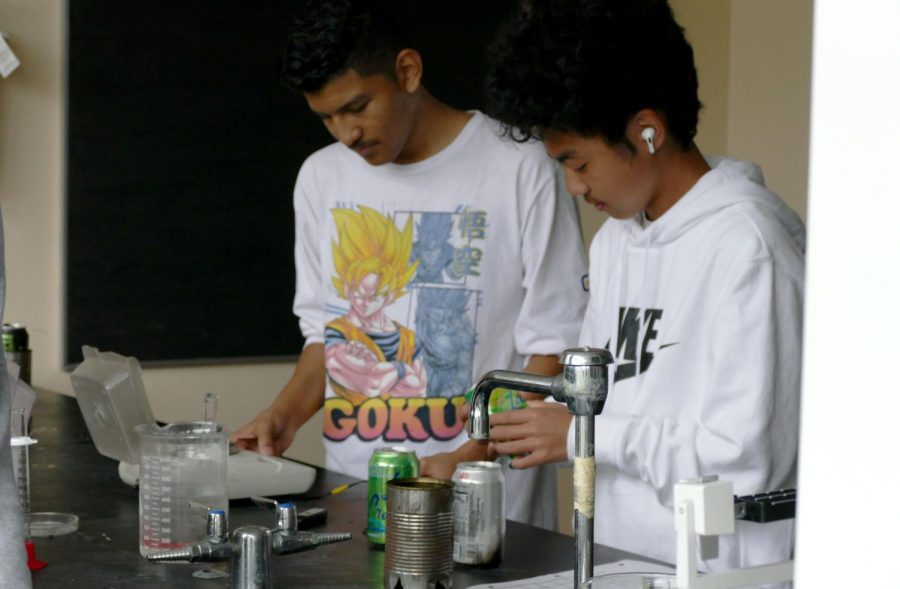Diversity in STEM
Dr. Jessica Watkins makes waves in STEM
Sophomores Brandon Castro Lara and Daniel Zilka work on a lab in chemistry May 16. According to chemistry teacher Alexander Polk, diversity is important in different views and ideas in STEM.
May 31, 2022
SpaceX recently launched a ship of four astronauts to the International Space Station for NASA. This crew is groundbreaking both because it is made up of an equal number of men and women, and because one of those women, Dr. Jessica Watkins, is the first Black woman to make a long-term spaceflight. This historic flight brings up conversations about why it’s so important to have diverse role models in STEM fields.
Diversity within science and technology fields creates a multitude of viewpoints that can foster new ideas and solutions. According to science teacher Alexander Polk, including a range of people from different backgrounds is crucial to making positive change.
“Especially in STEM, which is viewed by and pushed forward by people having different ideas and challenging each other, having those different perspectives in a room of decisions can push those decisions forward,” Polk said.
The bottom line is, having a team of educated people with different viewpoints will aid in future innovations. Engineering student Jack Walker agrees with this sentiment.
“More diversity brings out more ideas,” Walker said.
Equal opportunities in every career field are important for promoting growth across the world. To sophomore Nora Olson, allowing all people to accomplish what they want to is essential.
“Everyone should be able to do whatever they want and achieve their goals without adversity,” Olson said.
Although these statements about diversity and inclusion are true, there are still unfortunate disparities within STEM fields. Walker noticed such disparities in his engineering class.
“If you look in (the class) there are three minorities and the rest of us are white. It would be more chill to have more diversity within that class, but that’s just how it is,” Walker said.
Watkins and many other astronauts and scientists follow in the footsteps of Dr. Mae Jemison, who, in 1992, was the first Black woman to travel in space. The launch was a great step forward for NASA, but it’s also a bit bittersweet considering that, at the time, white men had been going to space for over 30 years. This combination of pride and disappointment in NASA continues to this day, as progress is still being made. Polk says Jemison is one of his role models.
“The number of things that (Jemison) did and was able to accomplish and the number of degrees she has, and the fact that she also loves to dance and was on an episode of Star Trek is super, super cool to me,” Polk said.
Overall, progress has been slow when it comes to the diversification of STEM fields, through inclusion and cooperation, advancements are being made to make the world of science, technology, engineering and math one of equal opportunity for all. For Polk, these changes are made through leadership.
“Diversity of thought helps lead to better and more progressive decisions,” Polk said.




